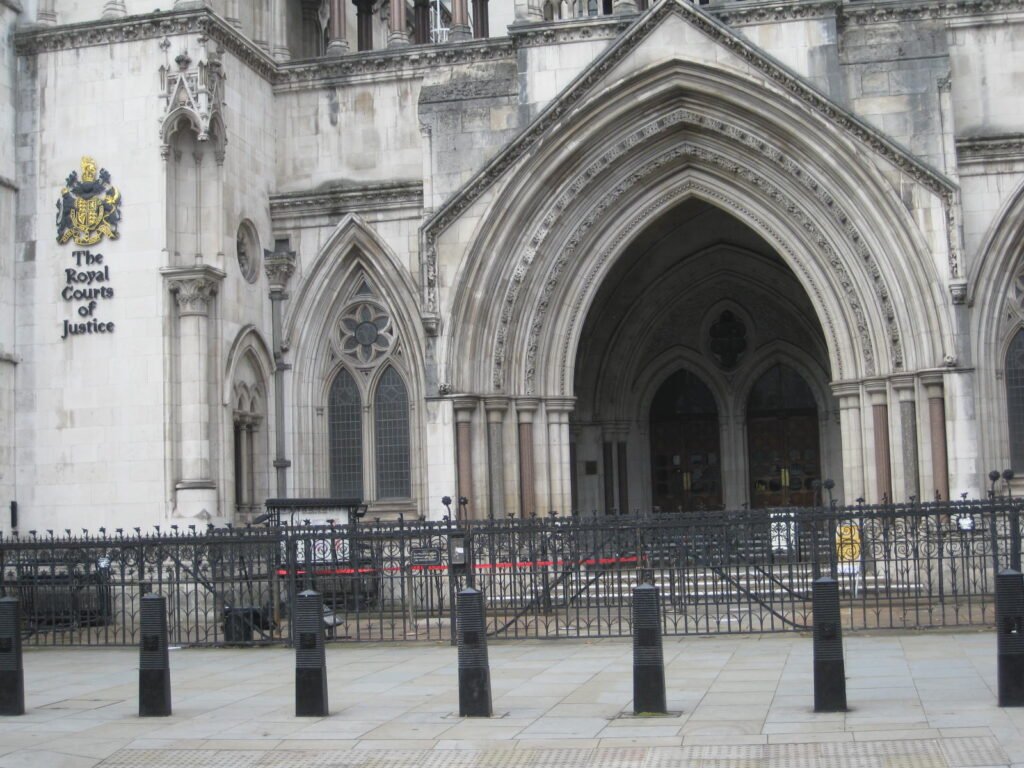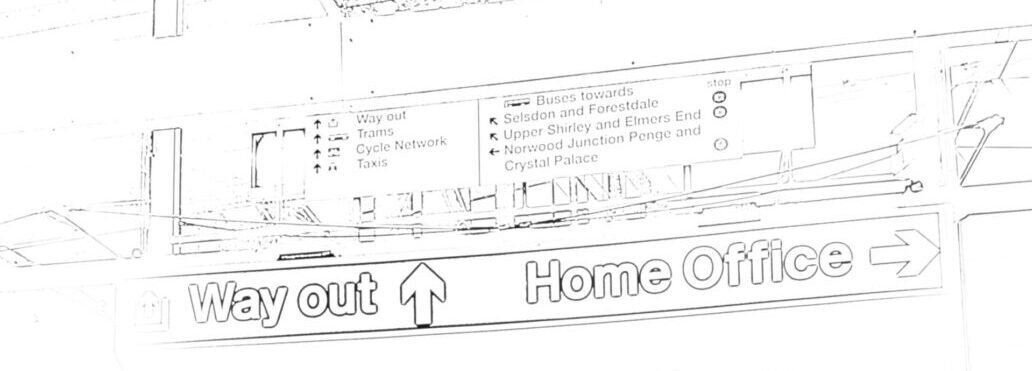CCJ Court judgement and Naturalisation applications
In principle, having debts or a CCJ claim against oneself does not need to be an impediment to acquiring British citizenship (Naturalisation). However, things are not as simple as that, and as usual with the UK immigration, the devil is in the detail.
In the Home Office Nationality: good character requirement guidance two important issues are raised.
- Financial soundness
- Deception and dishonesty
Financial soundness is defined as person’s ‘financial affairs being in appropriate order’. Not paying taxes means likely refusal of the Naturalisation application on the grounds of good character.
Having debts in itself is not a ground for refusal. However, the matter of how those debts were accrued and how the applicant deals with debts may lead to refusal on good character grounds. The Home Office caseworker will look at the financial affairs of the applicant and whether the applicant has a tendency to accrue exorbitant debts or to act recklessly in financial dealings.

CCJ
When Naturalisation applicant has a CCJ judgement it adds complexity to their Naturalisation application.
Anyone who is owed money may file a claim with a civil court. Applicants can for example have some unpaid parking tickets, and if those are unpaid they can lead to a CCJ.
If the claim is successful and a CCJ judgement is issued, it is placed on the Register of Judgments, Orders, and Fines, UNLESS the debt is paid within one month after the judgement. If the payment is made longer than one month after the judgement, the debtor will appear on the Register. The information stays on the Register for 6 years. The debtor may, however, apply to have his debt declared ‘satisfied‘ (paid) and that information will also appear in the register.
Anyone, including banks and Home Office, can access information on the Register for a small fee.
CCJ disclosure to the Home Office
A CCJ judgement must be declared by the applicants in their Naturalization applications. Failing to disclose such information may be considered as deception and result in the application being refused.
What is more, failing to declare a CCJ can be cosidered as a false statement. This can lead to a criminal prosecution under British Nationality Act.
Thus, having a CCJ in itself may not be a ground for refusal but failing to declare it may be.
Furthermore, the Home Office caseworker assessing an application will look at the way in which the debt was dealt with by the applicant. If the applicant fails to pay the debt or to acknowledge it, Home Office may come to the conclusion that the applicant is not financially sound and of a good character. The application may be subsequently refused.
The take away lesson for those who have CCJ judgement against them, is that a CCJ is not an end to applicants hopes for Naturalization. They have to be proactive though as the way the applicants deal with their debts and the CCJ(s), determines their chances of obtaining Naturalisation.
Communication with Home Office
While submitting an application to Home Office it is crucial to clearly and truthfully describe your situation. Applicant needs to tell the Home Office how, when and why CCJ was issued, and provide supporting evidence. What is equally important, is to explain the reasons for the debt and how you have dealt with it. This aspect is critical for the success of your Naturalisation application. Writing a concise and comprehensive cover letter may be difficult for someone who is not an expert. Experienced lawyer can write great cover letter that will help with a difficult application.
Our experienced immigration lawyer can write a cover letter for you for a reasonable price. Or help you with the whole process of applying for any visa/ILR or naturalisation application.
Related topics:
Bankruptcy and naturalisation applications.
Referees in naturalisation applications.
![]() Call us about any immigration matter on your mobile or dial +4402034889710.
Call us about any immigration matter on your mobile or dial +4402034889710.

Dear Sir,
I am an applicant for Indefinite Leave to Remain. I had a parking ticket when my daughter was involved in an accident and I couldn’t pay the parking fee. I received a letter from a firm of solicitors saying I had received a CCJ for a parking fine and I believed it was a scam, because when I checked on the official website there was no mention of your having a CCJ. I never received any communication from the court. Only when I received a further letter from Empia solicitors I had the idea of checking with my previous address. I found that I had a CCJ and paid straight away. So please could you advise me could it put my ILR application in risk?
Dear Mr Karami
As we do not know the exact circumstances of your case we cannot offer you detailed advice. We can, however, reiterate the advice given on the Home Office website. If you have paid your debt it is crucial to declare your debt ‘satisfied’ (paid) by going to the dedicated gov.uk webpage at https://www.gov.uk/county-court-judgments-ccj-for-debt/ccjs-and-your-credit-rating and following the instructions there.
Again, at present we cannot comment on the chances of your application as we do not know full details of your ILR case. What we can say in general is that you should be open and transparent about your CCJ and its circumstances when you submit your ILR application to the Home Office. Cases such as yours are complex matters that we recommend to seek advice from a professional immigration adviser who will take full details of your case and provide you with an advice. Should you wish to seek such assistance from us, please do not hesitate to contact us using the contact forms on our website or simply emailing us at info@thaxtedlegal.com.
I applied 2 months ago for naturalisation and recently issued a ccj, when i made the application obviously i did not know that i have a ccj nothing has been declared in the application, now will that affect my application at all?
Dear Karen
We note your comment submitted on our website. We do not have full details of the exact circumstances of your case and the CCJ judgement. Full details have to be obtained by us and we need to be instructed to give any legal advice. Our general recommendation to anyone submitting applications to the Home Office is to be open and honest about the circumstances of their case and any relevant matters that applicant is aware of at the time of application. If there are any material (i.e. relevant) changes in the applicant’s circumstances after the application is submitted the applicant may also need to inform the Home Office.
Regards
Thaxted Legal
Hello,
I have obtained parking tickets and some were unpaid but did not result in going to court do I have to disclose them?
Dear Chelsea
We do not know your full circumstances, however, in general any such matters should be disclosed, explained and evidenced.
Regards,
Thaxted Legal
I left United Kingdom 10 years ago but I’m yet to pay back my overdraft debt and unaware any CCJ against me. Currently, I intend to return to UK and, should I disclose this in my visa application?
Dear Sir
we are unable to give a detailed advice without knowing full details of your case. Could you contact us directly on the info@thaxtedlegal.com and we will discuss the case thoroughly.
Hi i have two ccjs. Those were claimed by my landlord. And it has been 4 years since the ccjs were issued, but i am not financially sound to pay off the ccjs. It is still like that on my file. What can be done to apply naturalisation? Thanks.
Hi I am in the process of applying for British citizenship. I have in the past had 2 joint cc’j,s with my husband – 1 for council tax and one for water, both have been paid and have been removed from the register as they are all over 6 years old. Must they be declared in my application
As a rule all CCJ’s should be declared by the applicant.
Hi I am in process of applying the citizenship, I had a CCJ in the past which is 9 years old which is no more exist. I don’t have any details of CCJ currently to notify the homeoffice. I checked in trustonline and could not find any details of the CCJ.
Please suggest what info I need to provide the homeoffice If I dont details of the CCJ.
Home Office is clear in demanding that all CCJ’s are disclosed. There is obligation to provide all the information that we possess. So if there are no documents applicant should simply give all he information he has or remembers, stating that the information provided is “to the best of my knowledge”.
I don’t have a CCJ against me but I am repaying an overdraft debt to my bank through step change which ends in December. I will be on the bad credit check for six years. I am applying for indefinite leave to remain in April 2024. How do I explain on the application my situation and will I be refused citizenship?
As we explain in the article, even CCJ does not preclude applicant from getting their citizenship in certain cases. As long as applicant can demonstrate that they are dealing with the situation they should be fine.
There are, however, no guarantees as Home Office has significant discretion in their decisions.
Hi, I was made bankrupt in 2011 and discharged in 2012. I have subsequently kept my finances in good order. Will this impede on me being recognised as having good character for an application of naturalisation?
Hi
It is difficut to make definitive pronouncements without knowing the full facts of your case, in general in your circumstances Home Office should approve application but each case is unique, Home Office case workers have some degree of discretion in their decisionmaking and there are no guarantees.